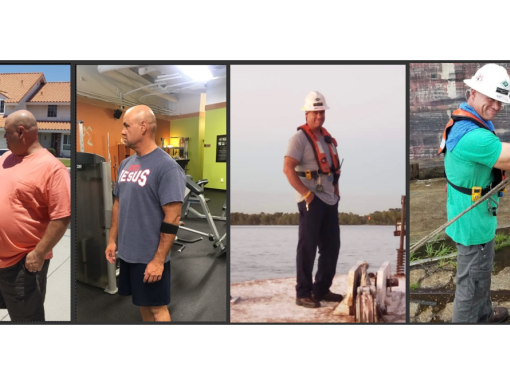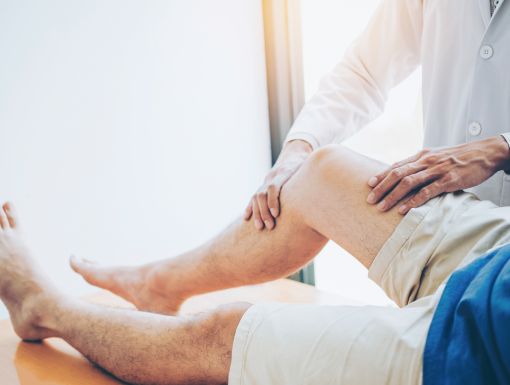
A Pain Management Success Story
Sister Kateri Battaglia of New Orleans had been living with chronic back and leg pain for years. A teacher of a self-created and state-approved dementia care curriculum and a self-described lifelong learner, the 77-year-old decided she was willing to learn to live her life differently to get back to the meaningful activities in her life, such as teaching, sewing, cooking and exercising with greater ease.
That’s when she found the Functional Restoration Program at Ochsner Baptist. The program helps patients suffering from chronic low back and neck pain who have not responded to other medical treatments. During the five-week program, patients work with team members to improve function, decrease disability and improve pain coping skills, sleep and mental well-being.
Sister Kateri says, “There are so many take-aways that I could cite, so I will try to condense my excitement. First and foremost, I was awakened to radical self-care. In the past, I had sacrificed my physical care so many times while meeting other demands in life. I knew how important it was to take care of myself. However, I often waxed and waned in my caring for me. All of this began to change while in the Functional Restoration Program.”
Patients who participate in Functional Restoration do so in group setting, known as a cohort. Each cohort consist of four people, who complete the five-week program together.
Sister Kateri was one of the participants in our March cohort. Her health had been suffering for longer than she even realized. She became weary and knew she had to make a change.
Sister Kateri has devoted her life to caring for others, as a teacher, caretaker and friend. For Sister Kateri, the thought of devoting her own time to focus on her own needs felt selfish; a myth that most of us are all too familiar with. We feel as though self-care is selfish. But what Sister Kateri quickly discovered was that taking time to focus on herself and on her health was not at all selfish, but rather, it enabled her to better care for those around her.
For the first time, in a long time, Sister Kateri became the student. Within the first two weeks of the program, she began to see progress. Little changes and adjustments were making a big difference in how she felt, slept, ate and lived. Watching Sister Kateri experience her “ah-ha moments” were as equally rewarding for the practitioners within the program as they were for her.
She had such positive momentum going, and then it came to an abrupt stop. COVID-19 hit, and suddenly, Sister Kateri’s momentum and progress were halted due to safety concerns that led to the temporary suspension of the Functional Restoration Program.
The decision was devastating for both the participants and the practitioners; however, it was a necessary decision for the health and safety of everyone involved.
Although COVID-19 posed many challenges to the continued success of our participants, technology can be a beautiful asset. It allowed us to stay connected to the participants of the March cohort. Although the pandemic had many negative consequences, one positive takeaway for Sister Kateri was that she had the opportunity to apply the principles she had learned during her time in the program to her everyday life. And although she was so proud of herself for being able to follow through with her new routine, she, like all of us, was struggling.
Making the necessary modifications to her daily routine was the easy part of quarantine. The hardest part was the loneliness and isolation she felt. Weekly Zoom calls kept us connected, but real human connection was cherished more now than it has ever been before. Connection keeps us healthy, and we were going to do everything in our power to continue the program once it was safe to do so.
Once we were able to reopen, the March cohort had the opportunity to complete their program. As to be expected, while staying at home for over two months, everyone experienced minor setbacks. But Sister Kateri’s attitude, motivation and determination never wavered. Her attitude helped carry the entire group. As the group began to regain their positive momentum, their time in the program felt more valuable. Sister Kateri had a newfound sense of self. She was even more proud of her herself now that she had proven she could continue to make progress despite barriers and challenges because she had the tools to do so.
Sister Kateri was not only a star student, but she is a bright light in this world and will make you smile (even behind a mask) the second you see her. She soaked up all the information and tools given to her throughout the program and she taught us so much more in return.
As Sister Kateri says, “You have to hydrate your heart.’’
Sister Kateri is just one amazing example of how much you can benefit from giving yourself the care that we are all so used to showing everyone else.
Sister Kateri is currently participating in the yearlong follow-up program at Baptist, and just had her three-month follow-up visit. Her new normal involves putting herself first (by the hardest) and applying all the tools she learned while in the program into her daily routine. Sister Kateri isn’t perfect. She faces the same daily challenges as we all do. But one of the most valuable take-aways from the program that she has been able to realize is that every day is a new day, a new opportunity and a new chance to do better for yourself.
If you are interested in participating in Functional Restoration at Ochsner Baptist, please speak with your primary care provider or contact our team at 504-894-2709.



